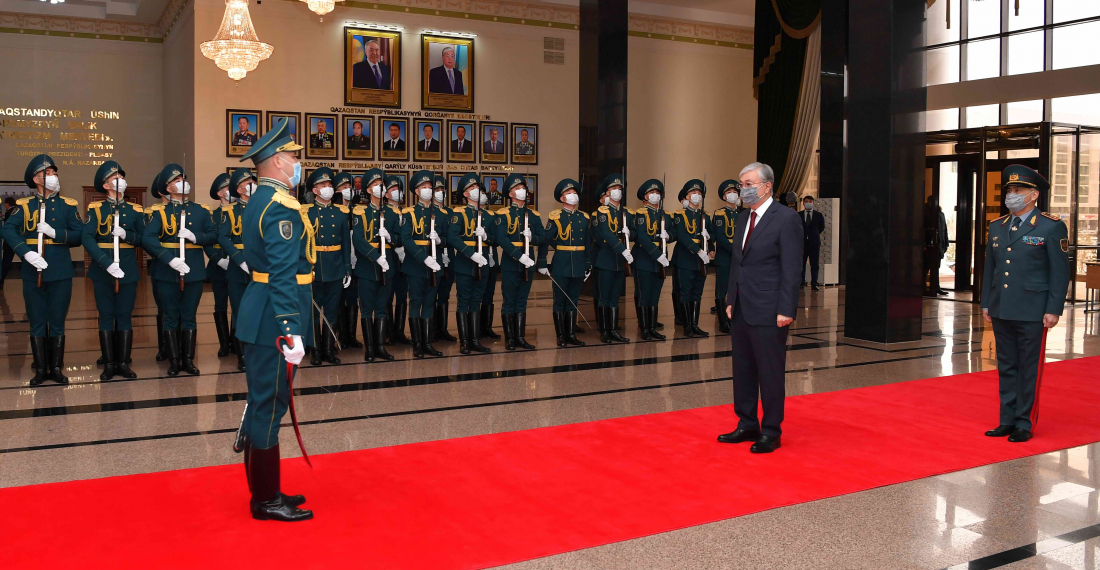The president of Kazakhstan, Kassym-Zhomart Tokayev, has called for an increased state of readiness in the country's armed forces, whilst addressing an enlarged board meeting of the Ministry of Defense in Nur Sultan.
The president said that a lot of work has been done, since independence nearly thirty years ago, to increase the defense capabilities of the country and he praised the the hard work of the First President, Nursultan Nazarbayev
Kassym-Zhomart Tokayev called on the leadership of the Ministry of Defense to closely monitor the rapidly changing situation in the world, both globally and in some regions. According to him, the current security architecture is in crisis. Tokayev said he believes that internal unrest and revolutions will inevitably affect the integrity of the country. This is evidenced by the new pages of history, from the Brest Treaty to the last events in the Kap Mountains, adding that
In this case, the only guarantee of the sovereignty and integrity of the state is the Armed Forces. The state always supports the servicemen who protect our country from external threats. As President and Commander-in-Chief, I consider the focus on defense to be a priority in my work.
The Kazakh leader said it was important to improve the moral and psychological situation in the army and the fighting spirit of the soldiers and ordered the military command to develop a concept of ideological work in the Armed Forces, other troops and military structures until November 1, 2021.
He also touched upon the issue of social and legal protection of servicemen. The President said that starting next year, the amount of money allocated for food for law enforcement agencies will increase, and it was decided to increase financial payments to servicemen by an average of 30% over the next 3 years. He stressed the need to constantly improve the military skills of the army. Kassym-Zhomart Tokayev noted that during this year's military exercises, the Kazakh military showed high readiness and readiness to participate in peacekeeping missions. In this regard, the Ministry of Defense was instructed to develop a roadmap for expanding the participation of the Armed Forces of Kazakhstan in UN peacekeeping operations until August 1, 2021.
The President thanked the military doctors of the Armed Forces for their assistance to the Lebanese people in dealing with the aftermath of the explosion in the port of Beirut. Kassym-Zhomart Tokayev also thanked all servicemen who honorably performed their duties in the fight against the coronavirus.
The President stressed the importance of equipping the Kazakh army with the most advanced digital technologies and tools. To address this issue, the President decided to introduce the position of Deputy Minister of Defense for Digitization. In addition, Kassym-Zhomart Tokayev instructed to create a single military information and communication infrastructure operator by November 1, 2021.
He noted a number of priorities in equipping military structures with modern weapons, taking into account the current challenges. The President gave priority to strengthening the air defense, development of elements of radio-electronic combat of types and types of troops, increasing the fleet of military transport aircraft in order to increase the operational capacity of the army.
source: commonspace.eu with the press service of the president of Kazakhstan
photo: President Kassym-Zhomart Tokayev arriving for a meeting of the Board of the Armed Forces of Kazakhstan on 19 November 2020. (picture courtesy of the press service of the president of Kazakhstan






